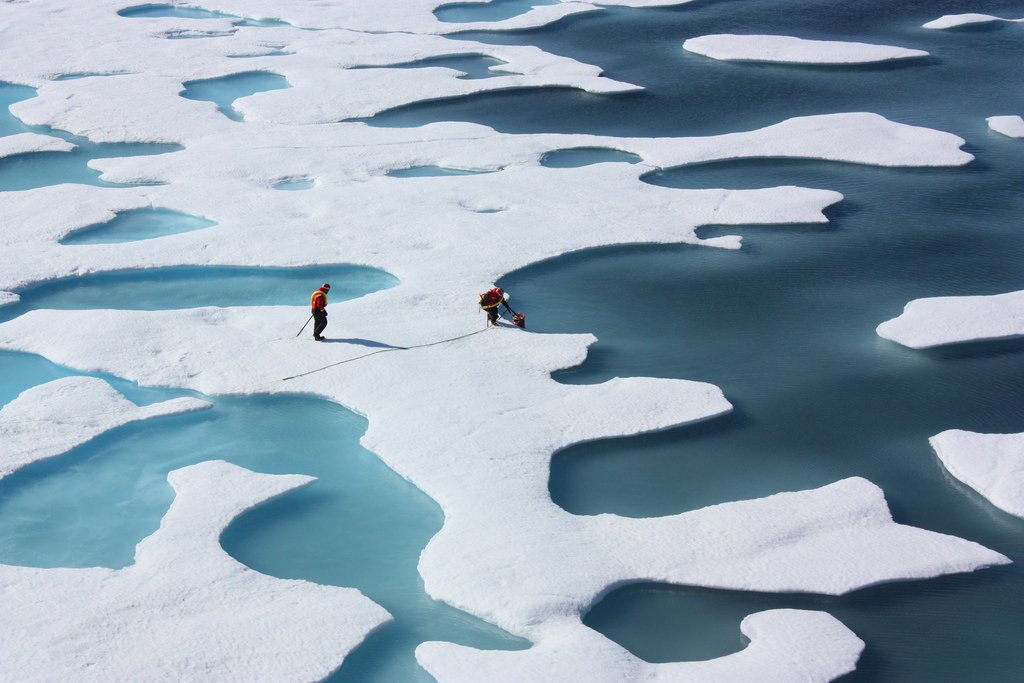Ever heard that time is just a concept, while most of us are stuck following its relentless march forward?
Well, a recent study has thrown some weight behind both those viewpoints, and it’s all linked to something unexpected: climate change.

Researchers have uncovered that as the Earth’s polar ice melts due to global warming, it’s actually causing time to drag. This might sound odd, but it’s because the shifting balance of ice affects the planet’s rotation speed.
The consequence? Our standard timekeeping system, known as UTC, might need a bit of a tweak by the late 2020s. The study, published in Nature, suggests that by 2029, we might have to make adjustments to keep our clocks in sync with the ever-changing Earth.
In essence, climate change is slowing down time, although the effect might seem minuscule – just a second or so every few years. But don’t underestimate the potential chaos this could cause, especially in the intricate world of computer programming. (Any tech headaches ringing a bell yet?)
A Wrinkle in Time
Let’s break down the complex concept of time’s interruption into simpler term as explained by Duncan Agnew a researcher at the University of California, San Diego.
Imagine the Earth’s core as a super-hot, solid metal ball, spinning away at a scorching 5,400 degrees Celsius. This spinning action affects everything around it. Now, since 1972, this core has been steadily cooling down. But even as it cools, it still moves, albeit slower, like thick, chilled molasses or jelly.
As the core cools down, the other layers of the Earth around it start to speed up. Initially, you might think this would make time move faster, but here’s where it gets interesting.
Now picture the polar regions of the Earth where temperatures are rising rapidly causing ice to melt at alarming rates. NASA’s observations tell us that Antarctica alone has lost a staggering 2,500 gigatons of ice since 2002 which is a massive amount of ice melting away.
This ice loss triggers a significant shift in how weight is distributed across the Earth, with water flowing towards the equator.
Explaining this, Agnew told Radio France, “When the ice melts, the water spreads out over the whole ocean, which changes how the Earth spins.”
Those responsible for keeping track of time globally saw this problem coming, but they expected it to happen three years earlier than Agnew’s new prediction. Interestingly, this delay gives us more time to address any potential computer glitches that might arise. It’s reminiscent of a famous panic from decades ago, but with a different outcome this time around.
Time Warp
Let’s back to 1967 when a ground breaking moment occurred in the world’s time keeping. It was the year when the cesium 133 atomic clock was established as the standard for measuring seconds in the International System of Units. Before that time depended mostly on Earth’s movement and its place in space.
But what made these atomic clocks so special? Well they’re incredibly precise because they use quartz oscillators tuned to how electrons move inside atoms nuclei. Since their introduction we’ve had to add 27 extra “leap” seconds to Coordinated Universal Time (UTC) to keep everything running smoothly.
But now, we’re venturing into uncharted territory – the concept of a “negative leap second.” Yes, you heard that right. It means we might have to subtract a second from the world clock. It’s a first! Most experts suggest we might need to do this around 2029, but new research by Agnew hints it could happen as soon as 2026.
Why’s this such a big deal? Think about all the computer software out there. It’s programmed to add extra seconds, not take them away. So, this could cause quite a few headaches.
Agnew explained to the BBC, “This is a significant development because it’s unprecedented, and ensuring that all the different parts of the world’s timing systems stay aligned is going to be quite the challenge.”
So, perhaps it’s time to revisit those Y2K shelter plans and consider stocking up on essentials. Or, you could simply tweak your watch by a fraction. Then again, maybe you’ll decide not to bother at all. After all, time’s just a human-made construct, isn’t it?
Source: ExplorersWeb